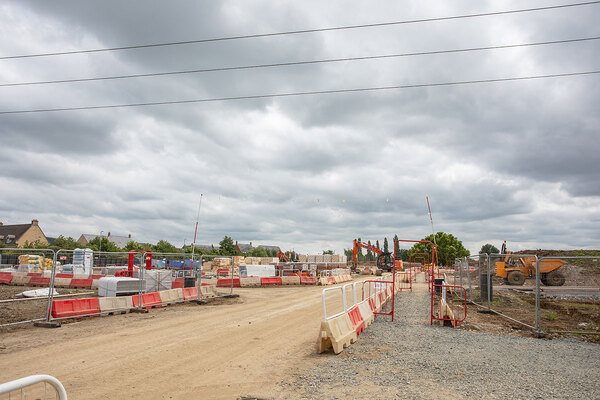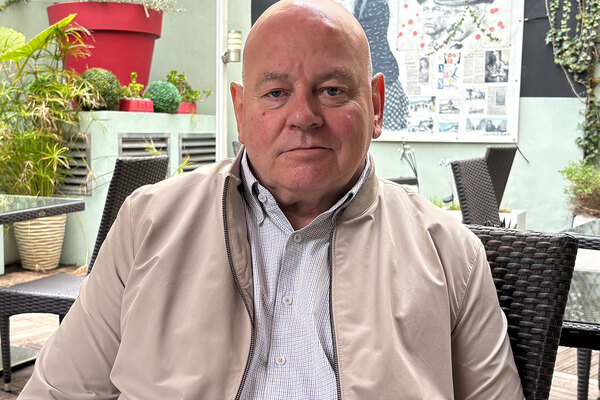Bordering dire straits
One element missing in the debates over Genesis’ plans to stop building cheap housing is the role of the board, says Tom Murtha

The recent interview by the chief executive of Genesis has provoked much debate and some excellent blogs in recent days. One area, however, has been missing from this debate – that is, the role of the non-executive.
In response to a question about providing homes for people on the lowest incomes, the chief executive is reported to have said, “That won’t be my problem.” This, of course, begs the response that if it is not your problem, whose is it? And more importantly, why does Genesis exist?
These are, of course, questions that should be asked and answered by the non-executives and boards of housing associations, not the chief executive. They are part of a debate that should take place when an organisation seeks to redefine its social purpose and answer the question, “Why are we here?”
What worries me about this now infamous interview (at least in the housing world) is that the board are barely mentioned. There is passing reference to having signed off a strategy and support for a Policy Exchange report, but no statement that the board have discussed and agreed a major step away from the original mission of this and many other associations.
The chief executives says that the detail will go to the next board, which is again interesting. He appears to have gone public on a major shift in direction before his board have signed off the details and – I presume – fully understood the implications of their decision on the people they were originally set up to help.
The main purpose of a board is to uphold the values and purpose of the association. Their duty is to test strategic and operational proposals against these. They are the association’s custodians and stewards. They have a responsibility to protect what they do, not just for this generation, but for the next.
In carrying out this function, they should hold the chief executive to account for his/her actions in delivering the organisation’s purpose and values. To put it bluntly, they are there to protect the values and purpose of an association against the whims and egos of chief executives. Most organisations fail when the non-executives do not adequately perform this role.
It would be interesting to know if a full debate on these proposals has taken place at Genesis. Ideally the tenants should have a role in this as well, but I note that the chief executive appears to dismiss “tenant engagement” completely.
The chief executive of Genesis is also one of the sector’s strongest advocates for deregulation. Even though it is unclear from the interview what benefits it would bring. Perhaps he is seeking the freedom to push up rents even further and to be even more selective with tenants. Of course, he has the backing of the National Housing Federation (NHF) in this and many other larger associations.
One thing that is not discussed is that if deregulation does take place the role of the non-executive increases to carry out the functions mentioned above. The balance and checks they provide become even more important.
In other sectors where deregulation has taken place major disasters have followed when the non-executives have failed to carry out their function and allowed uncontrolled diversification and growth to take place which often had nothing to do with the original values of the organisations. Northern Rock and the Co-operative Bank are the best recent examples of this.
Others have already made it clear that this announcement is part of a process that has been happening for some time. Genesis is planning to go further than most but I am sure that more will follow. I predicted this some time ago when I wrote about the slow death of social housing.
Genesis is just a very public example of what is happening quietly in other associations. Despite what the NHF says, evidence is growing daily that more and more organisations are excluding the very people they were set up to help. The federation’s role in this is interesting.
Many have noticed that they no longer use the term social housing. In another recent Inside Housing interview the NHF chief executive said that “the label got in the way”. No doubt reflecting the views of those that contribute most to the trade body. I am sure he still believes in providing “good quality affordable rented housing at low rent for people on low income” even if the chief executive of Genesis does not.
As far as I know, no non-executives or boards were asked if they supported the NHF’s decision to no longer refer to social housing. Even though it still makes up the majority of our work. All of the board members I speak to are involved in associations because of this social purpose. The majority are still motivated by a desire to help those in greatest need.
I find this motivation strongest among the financier the bankers and the business people who have joined our boards in recent years. Most of them do not want to be second rate developers and property speculators. They want to be responsible for first class housing associations providing homes to those in the greatest need at rents they can truly afford. Thankfully, they see it as their problem.
Tom Murtha, founder member of SHOUT













